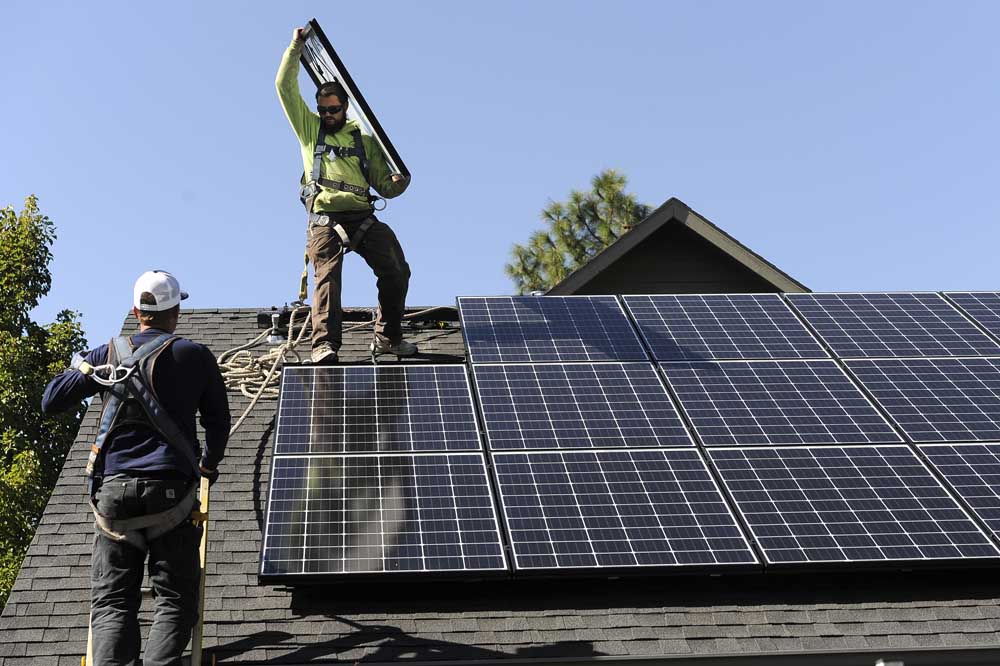Capital Chatter: In Oregon Senate, new faces from different places
Published 4:30 pm Thursday, December 19, 2024

- capital chatter logo
Eastern and Central Oregon are losing much of their influence in the state Senate.
Among the senators exiting the Legislature in January, either by choice or by force under voter-approved Measure 113, are Republican Sens. Lynn Findley, Vale; Bill Hansell, Athena; Tim Knopp, Bend; and Dennis Linthicum, Beatty.
Trending
“I look at all of you and all the bills that we’ve been able to accomplish and the great things that we’ve done for Oregon,” Knopp told his fellow senators last week. “This makes the time here worthwhile and long-lasting, because I know many of these things will last for decades and generations to come.”
Those four senators will be replaced by newly elected Sens. Mike McLane, R-Powell Butte, who previously served as House Republican leader; Todd Nash, R-Enterprise; Anthony Broadman, D-Bend; and Diane Linthicum, R-Beatty, wife of current Sen. Linthicum.
That means first-time senators will represent more than half of Oregon when measured by geography, not population. Findley said his District 30 alone encompasses 43% of the state.
Hansell noted that Oregon’s 30 senators are a tiny fraction of the state’s 4.2 million population.
“What an honor and privilege to serve in the Oregon Senate,” he said. “Colleagues, wear your [Senate] pin with dignity and honor as you serve the people of Oregon.”
Also departing are Sens. Brian Boquist, R-Dallas; Michael Dembrow, D-Portland; and Art Robinson, R-Cave Junction. Elizabeth Steiner, D-Portland, resigned last month to prepare for becoming state treasurer. She was replaced by Rep. Lisa Reynolds, D-Portland.
Trending
Coming into the Senate will be former legislator Bruce Starr, R-Dundee; Noah Robinson, R-Cave Junction, son of current Sen. Robinson; and Rep. Khanh Pham, D-Portland.
The loss of legislative and geographical knowledge touches people on both sides of the Cascades. Dembrow mused he would miss traveling throughout Oregon on legislative business, getting to know different parts of the state.
“It’s really enriched me in all sorts of ways,” he said.
Geographic awareness is integral to building political relationships. Sen. David Brock Smith, R-Port Orford, acknowledged that despite their political battles, he appreciated Dembrow’s approach.
“I sincerely appreciate you wanting to engage in the understanding of the intricacies and the difficulties of what it is for me to represent the people of my district in southwest Oregon, how very different they are from yours,” Brock Smith told his Portland colleague.
Sen. Lew Frederick, D-Portland, recounted that he wound up in Ontario four times this year because he enjoyed working with Findley so much.
Senate Republican Leader Daniel Bonham, The Dalles, told Findley: “It’s been a great ride watching you find ways of influencing and moving the needle on some things that are difficult topics, that are partisan topics, that you found a way to build relationships in such a special, meaningful way.”
Findley offered a warning to his colleagues who will return for the 2024 Legislature:
“Ninety percent of the issues that come across this chamber floor we agree on. … Five percent more, we have to work hard to get there. The other 5%, we’re not going to agree.
“But that other 5% is what cripples us, because we can’t walk away from that. We can’t say, ‘OK, let’s put that aside and do this 95% of this good stuff.’
“We get wrapped around the axle on the 5% and it starts affecting relationships, starts affecting integrity, and integrity is challenged by others because of that. And that’s not a good thing.”
He concluded: “I implore you, in the next legislative session don’t let that 5% drive you. Don’t let that 5% cripple this organization once again like you did before.”




